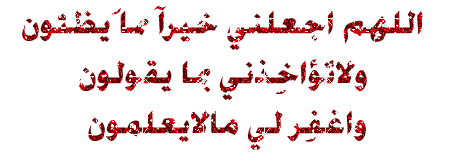NOT Moving the finger in tashahud.
Q. Can you give me the hanafi evidence for not moving the finger in tashahud and beating the shaitan?
A. According to an authentic tradition recorded by Abu Dawood, Nasai, Baihaqi and others, Abdullah bin Zubair (R.A) narrates that the Prophet (S.A) used to point with his finger (in Tashahud) and would not move it.
Imam Abu Dawood has narrated this with a sound sanad.
While commenting on the issue of moving the finger in Tashahud, Imam Nawawi has written, ‘The correct and sound opinion which the majority of scholars have firmly established is that one must not move the finger. If he moves it, it would be Makrooh (reprehensible) but will not nullify the Salaah.
(Al Majmu’ Sharhul Muhazzab vol.4 pg.441).
With respect to the traditions which are quoted to show that one must move his finger, the scholars of Ahadith have explained their meanings and also the traditions as follows:
Imam Baihaqi has narrated the tradition of Wa’il bin Hujr (R.A) in which it is narrated that Wa’il bin Hujr (R.A) described the Salaah of the Prophet (S.A) and mentioned that he (the Prophet) placed the both hands in tashahud and then raised his finger. I saw him moving it, making dua with it’.
While commenting on this tradition, Imam Baihaqi (who recorded this hadith) says, ‘It is possible that what is meant by ‘moving the finger’ was that he (the Prophet S.A) pointed with it and did not move it continuously. In this way it will be in agreement to the tradition of Ibn Zubair’.
(Al Majmu’ Sharhul Muhazzab vol.4 pg.441)
While commenting on these traditions, the great Muhaddith Allama Zafar Ahmad writes, ‘The hadith of Ibn Zubair which speaks about ‘not moving the finger’ in tashahud must be given preference over the tradition of Wa’il bin Hujr (which states that one should do it), for two reasons.
The first is that the sanad of Ibn Zubair’s tradition is sound and authentic as explained by Imam Nawawi, while the scholars have been silent about the tradition of Wa’il bin Hujr.
(Mulla Ali Qaari has mentioned this in the Sharh of Mishkaat).
The second reason is that the words narrated by Ibn Zubair indicate to a permanent and continuous practice of the Prophet (S.A) by saying, ‘The Prophet (S.A) used to point with his finger (in Tashahud) and would not move it’.
As for the narration of Wa’il bin Hujr (R.A), this reflects an isolated case of an act which was done in only one Salaah.
This understanding of his statement can be clearly seen from Ibn Hujr’s own words when he said, ‘I will certainly look at the Salaah of the Prophet (S.A)’. He then went on to describe the movement of the finger in tashahud
(As recorded by Imam Nasai). (Ila’us Sunan vol.3 pg.112-113)
It should be understood that other narrators have narrated the said tradition from the companion Wa’il bin Hujr (R.A), however, there is no mention in these traditions about moving the finger.
In one such narration recorded by Ibn Majah, he (Ibn Majah) states, ‘Ali bin Muhammad has narrated to us, (Ali says) Abdullah bin Idrees has narrated to us from Asim Ibn Kulaib from his father from Wa’il bin Hujr (R.A) who said, ‘I saw the Prophet (S.A) (in tashahud), he folded his thumb and middle finger and then lifted the finger close to it, supplicating with it’. (Ibn Majah.
In Az Zawaid it is mentioned that the sanad is sound and all the narrators are reliable –
Ila’us Sunan vol.3 pg.114)
Besides Wa’il bin Hujr (R.A), other companions have narrated about the tashahud of the Prophet (S.A), but they did not mention that he moved his finger. Instead, they narrated that he lifted/raised or pointed with his finger.
Such traditions have been narrated from Abdullah Ibn Umar (R.A), Abu Hurairah (R.A), Abu Humaid, Abdullah bin Zubair (R.A), Khafaf (R.A), Numair Al Khuzaa’i.
With respect to the tradition of Abdullah bin Umar (R.A) in which he narrates that the Prophet (S.A) said, ‘The movement of the fingers in Salaah frightens the shaitan’, the scholars have also given their explanations to this.
While commenting on this hadith, the great Muhaddith and scholar of hadith, Hafiz Ibn Hajar Asqalani has stated, ‘This hadith is weak’
(Ila’us Sunan vol.3 pg.112).
Imam Nawawi has also stated, ‘This is not sound’.
(Al Majmu’ Sharhul Muhazzab vol.4 pg.441)
Other great scholars of hadith have given similar verdicts. It is in view of the fact that the continuous practice of the Prophet (S.A) was not of ‘moving the finger’, we see that the great Imams of Fiqh have not accepted it as a practice in Tashahud.
This is the verdict of Imam Abu Hanifa, Imam Ahmad, Imam Shafi and the famous view of Imam Malik.
As mentioned by Imam An Nawawi, the act of not moving the finger in Tashahud is one which the majority of scholars have adopted (and not only the scholars of the hanafi Mazhab). The evidences which the Hanafi scholars as well as all others have used is the Saheeh (sound) narration from Abdullah bin Zubair (R.A) (as mentioned in the beginning) and all the other authentic traditions from the companions which show that the Prophet (S.A) simply lifted/raised or pointed with his index finger and he did not move it constantly.
And Allah knows best.
Mufti Waseem Khan








